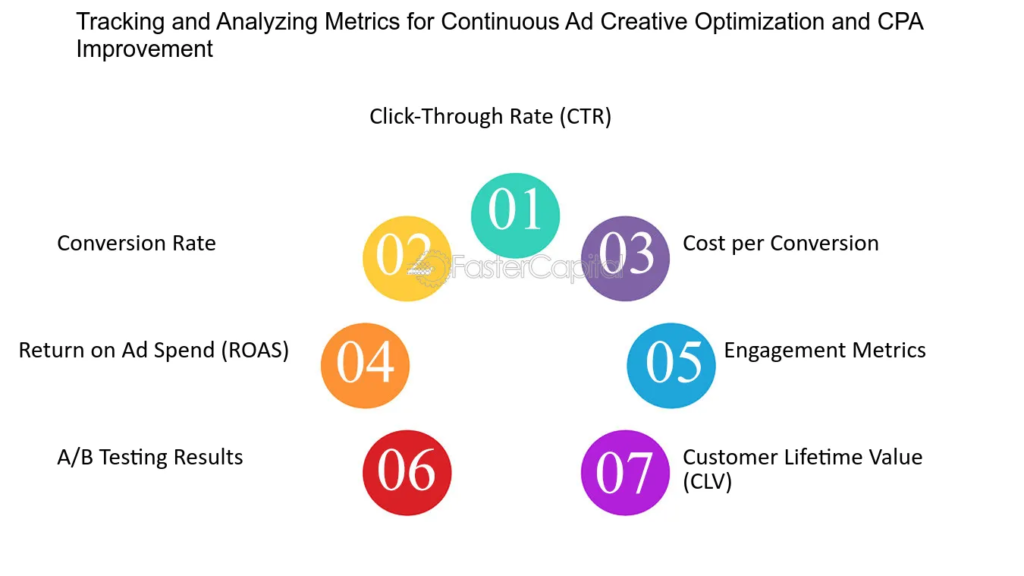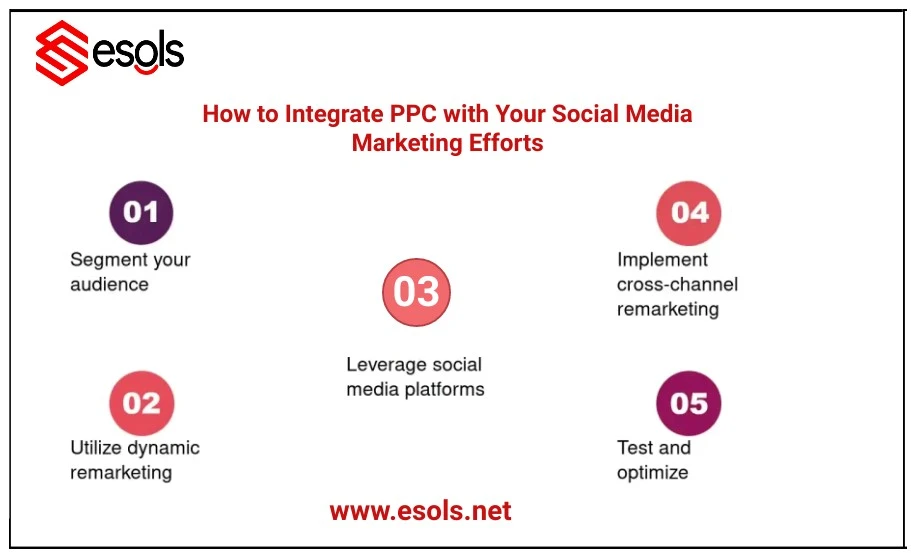Integrating PPC (Pay-per-click) and social media can help businesses to create a well-coordinated campaign that reaches a wider audience. With PPC you can drive quick traffic on your website, while social media marketing plays a major role in raising brand awareness and boosting your overall marketing efforts.
In this article, we will disclose how you can integrate PPC with your social media marketing and accomplish sustainable growth.
Table of contents
- Understanding PPC
- Social Media Marketing
- Integrating PPC with Your Social Media Marketing Efforts
- 1. Align PPC and Social Media Goals
- 2. Utilize Cross-Channel Remarketing
- 3. Optimize Ad Creative for Both Platforms
- 4. Leverage Social Media Insights for PPC
- 5. Synchronize Budget Allocation
- 6. Measure and Analyze Cross-Channel Performance
- Benefits of integrating PPC with social media
- 5 Benefits of Integrate PPC with Your Social Media
- Conclusion
- FAQ’s
Understanding PPC
PPC (Pay-per-click) marketing is an online advertisement method where an advertiser runs an ad and pays Google a specific amount when a user clicks on the advertisement. It is the quickest and budget-friendly way for digital marketing agencies to grab traffic, build relationships, and generate massive sales.
Social Media Marketing
Social media marketing involves promoting your business over various platforms such as Facebook, Instagram, YouTube Twitter, and LinkedIn. Nowadays, social media applications are getting more popular because of the increasing number of users.
Almost every platform has billions of active members, urging businesses to leverage these platforms for marketing.
Integrating PPC with Your Social Media Marketing Efforts
Integrating PPC with social media can offer countless advantages to a business. For instance, it can help in driving quick traffic along with boosting brand visibility and awareness. Moreover, you can easily remain ahead of your competitors in terms of leads and sales.

1. Align PPC and Social Media Goals
Ensure that your PPC and social media campaigns are aligned with your overall marketing objectives. For example, if your goal is to increase brand awareness, both PPC and social media content should reflect this. Consistent messaging across platforms helps reinforce your brand and achieve your targets.
2. Utilize Cross-Channel Remarketing
Leverage PPC ads to retarget users who have interacted with your social media content. For instance, if someone engages with a post on Facebook, you can serve them a relevant ad on Google Display Network. This approach keeps your brand top-of-mind and encourages conversions from previously interested users.
3. Optimize Ad Creative for Both Platforms
Tailor your ad creatives to suit both PPC and social media platforms. Use visuals and messaging that resonate with your audience while adhering to the best practices of each channel. High-quality, consistent creatives can increase engagement and click-through rates (CTR) across the board.

4. Leverage Social Media Insights for PPC
Use data and insights from your social media campaigns to inform your PPC strategies. Social media platforms provide valuable information about audience behavior, preferences, and demographics. Apply this knowledge to refine your PPC targeting and ad copy, ensuring your ads reach the most relevant audience.
5. Synchronize Budget Allocation
Coordinate your budget allocation between PPC and social media campaigns. Analyze which platform delivers better ROI for specific goals, and adjust your spending accordingly. A flexible approach to budgeting ensures that you maximize your advertising dollars across both channels.
6. Measure and Analyze Cross-Channel Performance
Regularly track and analyze the performance of your integrated campaigns. Use tools like Google Analytics, Facebook Ads Manager, and other analytics platforms to monitor key metrics like CTR, conversion rates, and ROI. This analysis helps you fine-tune your strategies and optimize the effectiveness of your campaigns.
Benefits of integrating PPC with social media
Integrating PPC with social media amplifies your marketing impact by enhancing targeting precision, boosting brand visibility, and driving higher engagement. This synergy allows for better data utilization, consistent messaging, and improved ROI, making your campaigns more effective across both channels.

5 Benefits of Integrate PPC with Your Social Media
Combining your PPC strategy with social media is a crucial strategy for those looking to achieve success in the competitive digital landscape. Apart from increasing brand awareness this step can bring long-term advantages that we are going to explain below
Enhanced Targeting Precision:
Combining PPC and social media allows for more refined audience targeting. Social media insights help you understand your audience better, while PPC ensures your ads reach them on multiple platforms, increasing conversion potential.
Increased Brand Visibility:
By synchronizing PPC and social media efforts, your brand appears more frequently across different channels. This consistent presence reinforces brand recognition and keeps your business top-of-mind among potential customers.
Higher Engagement Rates:
Integrated campaigns create a cohesive user experience, leading to higher engagement. When users see consistent messaging across PPC and social media, they are more likely to interact with your content, driving up click-through rates and conversions.
Improved ROI:
The combination of PPC’s targeted reach and social media’s expansive audience can significantly boost your return on investment. By optimizing campaigns across both platforms, you can maximize the impact of your ad spend and achieve better results.
Better Data Utilization:
Integrating these strategies allows you to leverage data from both PPC and social media. This cross-channel insight helps in crafting more effective campaigns by identifying what works best, refining targeting, and improving ad performance.
Conclusion
Integrating PPC with your social media marketing efforts can significantly enhance your overall marketing strategy. By aligning goals, leveraging cross-channel remarketing, optimizing ad creatives, and analyzing performance, you can create a cohesive approach that maximizes the impact of both PPC and social media campaigns.
Readmore :Why is graphic design important in business?
FAQ’s
Use tools like Google Analytics and Facebook Ads Manager to monitor metrics like CTR, conversion rates, and ROI.
Cross-channel remarketing helps keep your brand top-of-mind and encourages conversions from users who have already shown interest in your content.
Tailor your visuals and messaging to suit the best practices of each platform while maintaining consistent brand messaging.
Not necessarily. Budget allocation should be based on which platform delivers better ROI for your specific goals, with adjustments made as needed.

Smith
Welcome to my blog! As an Digital Marketing expert with over 15 years of experience, I’ve witnessed the transformative power of search engine optimization from the very beginning of my career. In this blog series, I’ll delve into the crucial role SEO , marketing plays in the success of small businesses. Join me on this journey to uncover how leveraging data-driven insights and innovative SEO techniques can propel your small business to new heights, attract a broader audience, and drive sustainable growth in the digital age. Whether you’re a seasoned entrepreneur or just starting out, you’ll find valuable insights and practical tips to enhance your Digital Marketing strategies.


